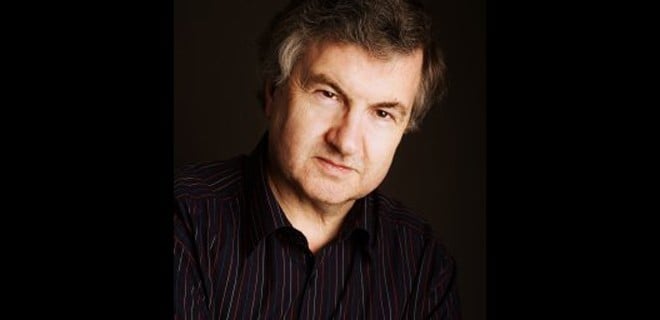

Michael Gove, Education Secretary of the United Kingdom, incurred the wrath of historians for his recent article in the Daily Mail "Why does the Left insist on belittling true British heroes?" In a caustic writeup, Gove particularly gave short shrift to renowned Cambridge historian Sir Richard J Evans over one of his columns in The Guardian.
Professor Evans is one of the leading British historians specialising in modern European history. Historiography, too, is his passion, for which he is known in Pakistan. Despite the quite pronounced ring of acerbity in the mutual denigration, the exchange remained academic in essence and mostly within the limits of civility. There was no insinuation or incrimination.
Interestingly, Gove called Evans "a leftist historian who writes for The Guardian" who insists ‘on belittling true British heroes’. None of them called each other Ghadar or Kafir, the epithets our ears are so attuned to. Calling anybody merely a ‘leftist’ sounds rather like a euphemism. However, a curious point of commonality in ‘us’ (Pakistanis) and ‘them’ in this particular case is the deployment of the ‘left(ist)’ in the pejorative sense.
The primary motive of the dispute was about the history in national curriculum devised for pupils aged 5 to 14. The initial draft of the curriculum met with trenchant criticism from top historians in the country for its over-emphasis on a chronologically-ordered and fact-based formulation. Consequently, the curriculum was revised in view of the suggestions proposed by historians, foremost among whom was Richard Evans.
The new version of the curriculum abandoned the chronological approach which existed in the earlier draft and such themes as crime and punishment through the ages; in-depth studies in local history were included instead. The draft was "less prescriptive", "leaving teachers with more scope to use their own initiative and imagination".
Thus Gove’s original intention of using history teaching at the schools, writes Evans, "to impart a patriotic sense of national identity through uncritical hero-worship of great men and women from the British past" was set at rest. He further says, "Gone is the triumph list celebration of victories such as the Spanish Armada or the Battle of Waterloo… History is not a myth-making discipline, it’s a myth-breaking discipline, and it needs to be taught as such in our schools".
It is essential for us, as Pakistanis, to appreciate what Evans has underscored. Indeed the creation of a national identity via a celebratory romp through the heroes and triumphs of the yore is not the role that ‘history’ is supposed to play. National identity cannot be manufactured or imposed by rulers or through their version of history. It has to emerge organically, by popular consent. Neither can it be created by concocting historical myths, because they will certainly be contested one day or another.
The tension brewing beneath the surface forced itself into the open when the issue of commemoration of the centenary of the outbreak of the First World War was broached. Richard Evans in his assertion, privileged the "broad and inclusive plans of the culture secretary" (Maria Miller) over the "tub-thumping jingoism" of Gove which, he said, was an attempt to "force schools to teach an uncritically celebratory narrative of English history". Then Evans furnishes an alternative reading of the First World War which inverted completely the way Gove imagines the event. He refuses to accept First World War as a "just war", a "noble cause" which was fought by men "committed to defending the western liberal order".
One of the two allies that Britain had was the Tsar Nicholas II of Russia, as despotic and rather more authoritarian than Germany’s Kaiser. Such a statement, even if cogent and factually authentic, may put one in a deep trouble, particularly if seen from our vantage point. But Richard Evans goes on to contest the entire notion of Britain as an emblem of the western liberal order. At that time Britain was not a democracy because until the Reform Act of 1918, 40 per cent of adult males didn’t have the right to vote whereas in Germany every male was entitled to cast a vote in national elections. He, therefore, calls into question, although a bit vicariously, the claim that Britain is the mother of democracy etc.
The First World War, as many scholars argue, was the seminal catastrophe of the entire period, from which emanated many evils that subsequently plagued Europe as well as other regions of the world. Fascism, racism, anti-Semitism, dictatorship, extreme violence, mass murder, genocide and "the wholesale abandonment of civilized values across the continent" were the illustrations of those evils. The men who enlisted may have thought they were fighting for civilisation, a better world, a war to end all wars, a war to defend freedom. All of them, according to Prof. Evans, were wrong. Of course, nothing of the sort came to pass as a consequence.
It is not only historians that are obliged to promote and instil the spirit of critical inquiry not only among themselves but others. Human history is bound to have pitfalls which must be rectified. Events or personalities which have had a more profound bearing on history cannot be rendered sacrosanct simply because history is inherently mutable and more often than not changes its course, thus it is written and re-written every now and then.
If one goes by what E.H. Carr says, then every generation needs its own history, and certainly every generation also needs to have its own understanding of history too. Much of history, therefore, is made by writing it.